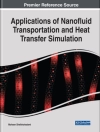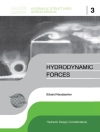This book focuses on clean transport and mobility essential to the modern world. It discusses internal combustion engines (ICEs) and alternatives like battery electric vehicles (BEVs) which are growing fast. Alternatives to ICEs start from a very low base and face formidable environmental, material availability, and economic challenges to unlimited and rapid growth. Hence ICEs will continue to be the main power source for transport for decades to come and have to be continuously improved to improve transport sustainability. The book highlights the need to assess proposed changes in the existing transport system on a life cycle basis. The volume includes chapters discussing the challenges faced by ICEs as well as chapters on novel fuels and fuel/ engine interactions which help in this quest to improve the efficiency of ICE and reduce exhaust pollutants. This book will be of interest to those in academia and industry alike.
İçerik tablosu
Introduction to Engines and Fuels for Future Transport.- Sustainable Transportation.- A review of emissions control technologies for on-road vehicles.- Opposed-Piston Engine Renaissance: Low CO2 and Criteria Emissions.- An Overview of Hybrid Electric Vehicle Technology.- Life-Cycle Analysis for the Automotive Sector.- Pre-Chamber Combustors: An Enabling Technology for High Efficiency, Low CO2 Engine Operation.- Pathway to Ultra-Lean IC engine combustion: Narrow Throat Pre-chamber.- Active Pre-Chamber with Bio-Hybrid Fuels.- The Use of Ammonia as a Fuel for Combustion Engines.
Yazar hakkında
Dr.
Gautam Kalghatgi worked for 31 years at Shell Research, U.K., followed by 8 years in Saudi Aramco before retiring in June 2018. He has been a Visiting Professor at Oxford University, Imperial College, London, KTH Stockholm, TU Eindhoven and Sheffield University. He is a Fellow of the Royal Academy of Engineering, SAE, I.Mech.E. and Combustion Institute and an Honorary Fellow of the International Society for Energy Environment and Sustainability (ISEES). He is on the International Board of Directors of the Combustion Institute and on the editorial boards of several journals. He has published around 140 papers and a book on combustion, fuels and engine research and on transport energy. He has received several awards for his work including the 2021 ASME Internal Combustion Engines award, Huw Edwards award of the Institute of Physics, SAE Horning Award, and the Sugden award of the Combustion Institute. He has a B.Tech. from Indian Institute of Technology (IIT) Bombay (1972) and Ph.D. from Bristol University (1975) in Aeronautical Engineering.
Prof. Avinash Kumar Agarwal joined IIT Kanpur in 2001. He worked at the Engine Research Center, UW@Madison, the USA as a Post-Doctoral Fellow (1999 – 2001). His interests are IC engines, combustion, alternate and conventional fuels, lubricating oil tribology, optical diagnostics, laser ignition, HCCI, emissions, and particulate control, 1D and 3D Simulations of engine processes, and large-bore engines. Prof. Agarwal has published 435+ peer-reviewed international journal and conference papers, 70 edited books, 92 books chapters, and 12200+ Scopus and 19000+ Google Scholar citations. He is the associate principal editor of FUEL. He has edited “Handbook of Combustion” (5 Volumes; 3168 pages), published by Wiley VCH, Germany. Prof. Agarwal is a Fellow of SAE (2012), Fellow of ASME (2013), Fellow of ISEES (2015), Fellow of INAE (2015), Fellow of NASI (2018), Fellow of Royal Society of Chemistry (2018), and a Fellow of American Association of Advancement in Science (2020). He is the recipient of several prestigious awards such as Clarivate Analytics India Citation Award-2017 in Engineering and Technology, NASI-Reliance Industries Platinum Jubilee Award-2012; INAE Silver Jubilee Young Engineer Award-2012; Dr. C. V. Raman Young Teachers Award: 2011; SAE Ralph R. Teetor Educational Award -2008; INSA Young Scientist Award-2007; UICT Young Scientist Award-2007; INAE Young Engineer Award-2005. Prof. Agarwal received Prestigious CSIR Shanti Swarup Bhatnagar Award-2016 in Engineering Sciences. Prof. Agarwal is conferred upon Sir J C Bose National Fellowship (2019) by SERB for his outstanding contributions. Prof. Agarwal was a highly cited researcher (2018) and was in the top ten HCR from India among 4000 HCR researchers globally in 22 fields of inquiry.
Dr. Kelly Senecal is a co-founder and owner of Convergent Science, a computational fluid dynamics (CFD) software company headquartered in Madison, Wisconsin, USA. He is a visiting professor at the University of Oxford, an adjunct professor at the University of Wisconsin-Madison, and a co-founder and director of the Computational Chemistry Consortium (C3). He is one of the original developers of CONVERGE, an industry-leading CFD solver. Dr. Senecal is a Fellow of the Society of Automotive Engineers (SAE), a member of the executive committee of the American Society of Mechanical Engineers (ASME) ICE Division, a member of the board of advisors for the Central States Section of the Combustion Institute, and the 2019 recipient of the ASME Internal Combustion Engine Award.
Dr. Felix Leach is an Associate Professor of Engineering Science at the University of Oxford, a post held jointly with that of Fellow and Tutor in Engineering Science at Keble College. His research interests are in emissions and efficiency of thermal propulsion systems and air quality. He has had a particular focus on particulate emissions from gasoline direct injection engines and developing a fundamental understanding of NOxemissions from diesel engines. He has spent over a decade working in close collaboration with industry using world-leading measurement capabilities to help develop a clean engine for the 21st century. Dr. Leach founded the annual Oxford Air Quality Meeting which draws together experts in vehicle emissions, air quality measurement, public health, and policy. Dr. Leach holds MEng and DPhil degrees in Engineering Science from the University of Oxford and is a Chartered Engineer and Member of the Institution of Mechanical Engineers, a Fellow of the Higher Education Academy, and a member of the Society of Automotive Engineers.












